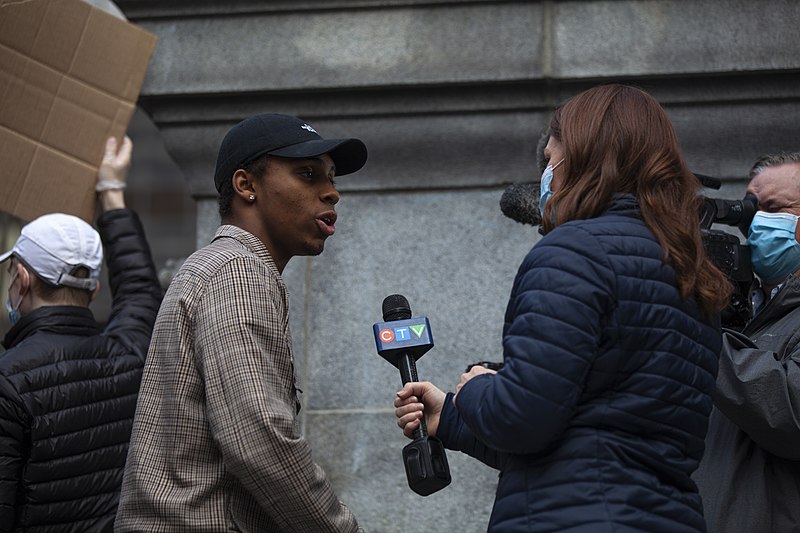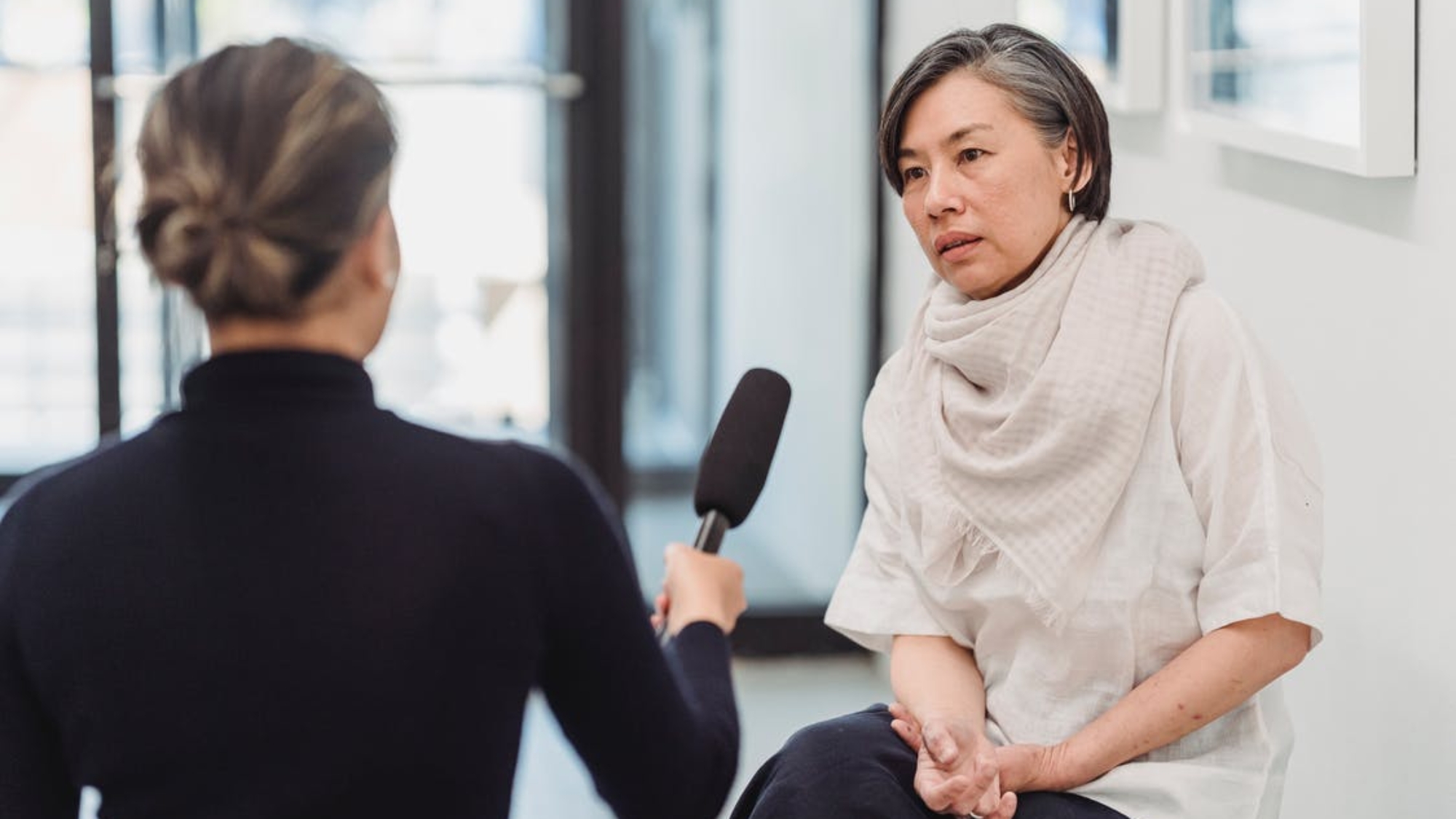There are different rules for interviewing different types of people depending on the situation. If you’re interested in learning how to interview people with more expertise on a particular topic, read our guide on navigating a press conference. In the case of interviewing ordinary members of the public, different rules apply. Here’s how to interview ordinary people:
1. Don’t pressure people
These are not powerful people. These are ordinary members of the public that you have reached out to either at the scene of an event or prior. You’re sharing their voice and you’re there to listen. You could find yourself interviewing someone at a moments notice. You could be at the scene of an accident or at an event where members of the public are going to be. If you approach people and ask if they’d like to be interviewed, they may not be ready to speak at that particular moment, but ensure you leave them with your contact details and take theirs if they’re willing to give them.
2. Long process sometimes
Getting an interview with relevant people who are not in positions of power can be difficult. Many ordinary members of the public are happy to speak to and share information with someone taking an interest in their issues and sharing them with the wider public. However some may not be so keen. It’s important that you are patient and give people time to consider your offer of an interview and the space to think about what they’d be willing to share. You will need to build a list of contacts up which will inevitably take time. You will come into plenty of hurdles when interviewing people. We have 7 helpful tips to overcome them.
3. May have to meet people multiple times
For many people the first time you interview them may be the first media interview they’ve ever had. Accept that often people will not tell you everything up front and in one go. It’s a part of the reality of interviewing anyone that they may give inaccurate information. This could be because the truth could get them in trouble, they didn’t mean to lie, they’re misinformed, the facts changed or they were the wrong source to interview and weren’t an expert.
Look at all the information you’ve gathered and see if it matches. Is there any information or are there any quotes that don’t match? If you suspect something is wrong, go back to the source to confirm. You should find other sources to confirm or debunk the information you have. Make sure you don’t publish anything until the story is watertight. Having sources that trust you will help with this. Patience is key when looking at how to interview ordinary people.

4. Be careful with sensitive issues
You could be interviewing people involved in sensitive situations such as trauma survivors. Don’t exploit the victim or their relatives. Avoid graphics that stereotype someone as a victim in which something happened to them. Instead portray them as a survivor who was strong to overcome a traumatic event. Remember that your interview and report is a 2nd and 3rd wound for someone. Ask yourself 3 questions: Who does it help/hurt and how many? Does my interview or portrayal of the victim support the purpose of my story?
Publish only what the public needs to know. If the roles were reversed, how would I want the journalist to treat me? Assume the victim may be in a state of shock or have PTSD just to be on the safe side. Respect what a survivor has been through and treat them with compassion. Don’t be obsessed with the questions, be like a therapist instead ensuring you say “We can come back to that later if you want” if required. Never say ‘i understand’ or ‘i understand how you feel’ regardless of whether you actually do or not. Finally, don’t ask the hardest questions first.
5. Find common ground to get rapport
Interpersonal skills are necessary for you to work as a journalist and overcome obstacles in trying to reach relevant people. This is a common sense approach but is worth mentioning and factoring in as it’s often overlooked. Particularly as a journalist you are there to do a job and therefore may see the interview process with ordinary people as more formal than it should be. Don’t treat it as an interview but more of a friendly conversation. While you’re here, check out our more general guide to conducting a news interview.


Itís nearly impossible to find experienced people on this subject, but you sound like you know what youíre talking about! Thanks